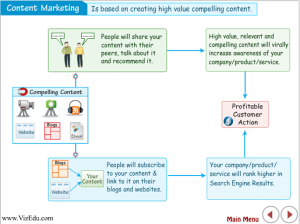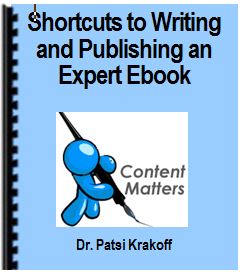 I ran across this great slide share about how content marketing works on Vizedu from Sandeep Arora, but there’s something missing. Don’t get me wrong, I love this explanation of what content marketing is, how it works, and the difference from traditional marketing.
I ran across this great slide share about how content marketing works on Vizedu from Sandeep Arora, but there’s something missing. Don’t get me wrong, I love this explanation of what content marketing is, how it works, and the difference from traditional marketing.
In order for your readers to find you, read your content, and remember you, you’ve got to grab their attention, spark an emotional engagement, and get them to take action.
How do you do this? Read More→











